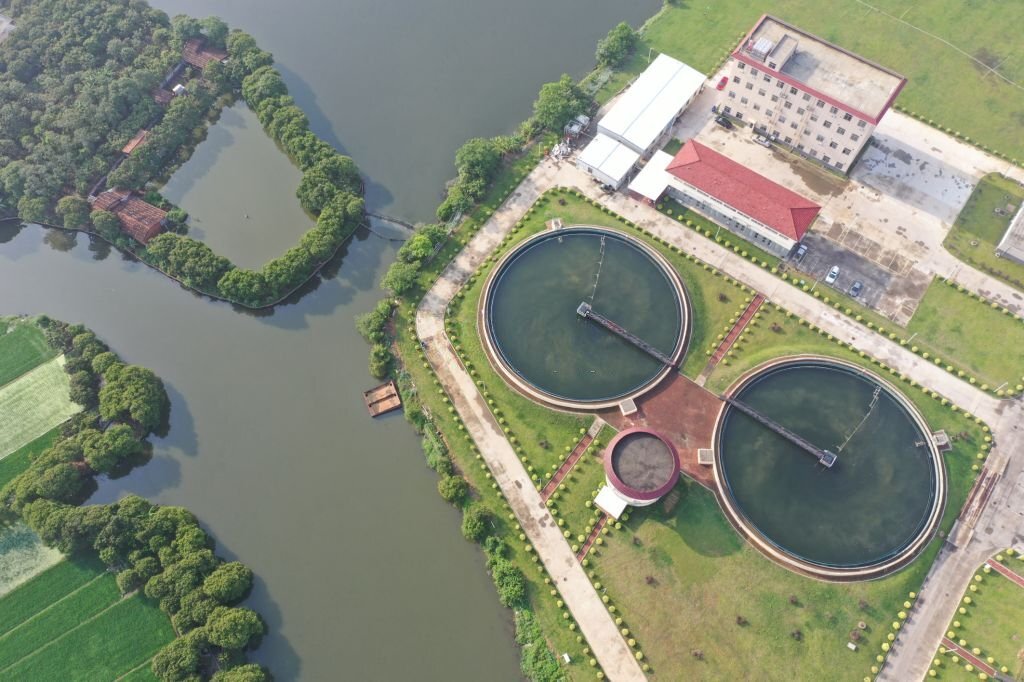Wastewater treatment plants are built to speed up or aid the natural process of purifying water. With billions of people using natural water resources every day, the natural cleaning process is overloaded. Without the intervention of wastewater treatment plants, the volume of untreated wastewater will cause devastation and lead to a shortage of clean drinking water. The problem is already growing in developing countries. Approximately 80 per cent of all toxic wastewater is discharged without treatment. Countries equipped with water treatment facilities use various techniques to reach one common goal: treat water as much as possible and let it evaporate back into the environment. This is done primarily to keep the human race going and the earth green and thriving.

You may ask how purified water can help cure the earth or help sustain the human race? Here’s how:
- Sewage treatment plants help revive the ocean life, which will otherwise perish under the blanket of toxic chemicals from factories.
- Purified water, when it evaporates from the face of the earth, forms uncontaminated clouds, which decrease the toxicity of acid rains. Thus, preventing crop damage and damage to property. Acid rain also causes harmful skin diseases, sometimes incurable.
- Treated water decreases the potential of water-borne diseases.
Wastewater Treatment Safeguards Human Life and Ecosystem
Wastewater contains harmful contaminants which can damage human health and the ecosystem. Wastewater treatment plants help clean the water through various processes like industrial wastewater treatment, carbon filter treatment, pressure sand filter, Greywater treatment, sewage water treatment and more. This is done to eliminate the ongoing situations of water scarcity in developing countries. Unclean or untreated water poses significant health problems, leading to 1.7 million deaths annually. Of these numbers, over 90 per cent are found in developing countries. Many water-related diseases like cholera and schistosomiasis remain prevalent across several countries. This happens because an insignificant fraction (in a few cases less than 5 per cent) of domestic and industrial wastewater is treated before its release into the environment.
If toxic chemicals such as phosphates and nitrogen enter water bodies breeding aquatic life, it results in triggered plant growth which releases harmful toxins into the water. The toxins cause oxygen depletion and dead zones in the water body, adversely affecting marine life causing them to suffocate and die.
Reasons Why the Natural Water Treatment is Overloaded
Even though nature is blessed with healing properties, there are still limits to those properties. The global population is so huge and constantly multiplying, curbing wastewater problems is slowly becoming a myth. Common reasons for overloading of natural water treatment are:
- Toxic release of waste material and wastewater into water bodies from factories and houses.
- Constant dumping of garbage into rivers and sewage
- Oil spills from colossal cargo ships
- Washing clothes and animals in the river
How to Discharge Purified Water Back into the Environment
Wastewater treatment plants are designed to filter and sanitise unclean water to remove pollutants, harmful chemicals, pathogens and all kinds of germs and bacteria. The treatment of contaminated water is carried out in different stages. For industrial water treatment, the first stage cleanses the water of solid particles such as metal, plastic, paper and other waste products. This process takes place in a sedimentation tank. After this, the partially clean water is passed through a biological process in sedimentation tanks that uses naturally occurring microorganisms to digest suspended organic pollutants.
The third and final stage of water treatment is known as the tertiary treatment stage. In this stage, the water is passed through filters of carbon and sand to remove biological pathogens which are harmful to human health. Considering the percentage of impurities, the purifying process can be repeated multiple times if the treated water is meant for human consumption. Otherwise, the purified water can be released in fields for irrigation or let out in rivers or streams.
Whom to Hire for Wastewater Treatment Plants?
At Cleantech Water, we aim to provide all-encompassing wastewater treatment solutions. Our products and services are used in industrial, commercial and residential locations, offering complete satisfaction to our consumers in India. You can hire our experts today to install top quality sewage plants or water filters at your place. Contact us at +91-9099915539 /+91-9558996411 or write to us at Info@cleantechwater.co.in. We will be happy to help you out!

